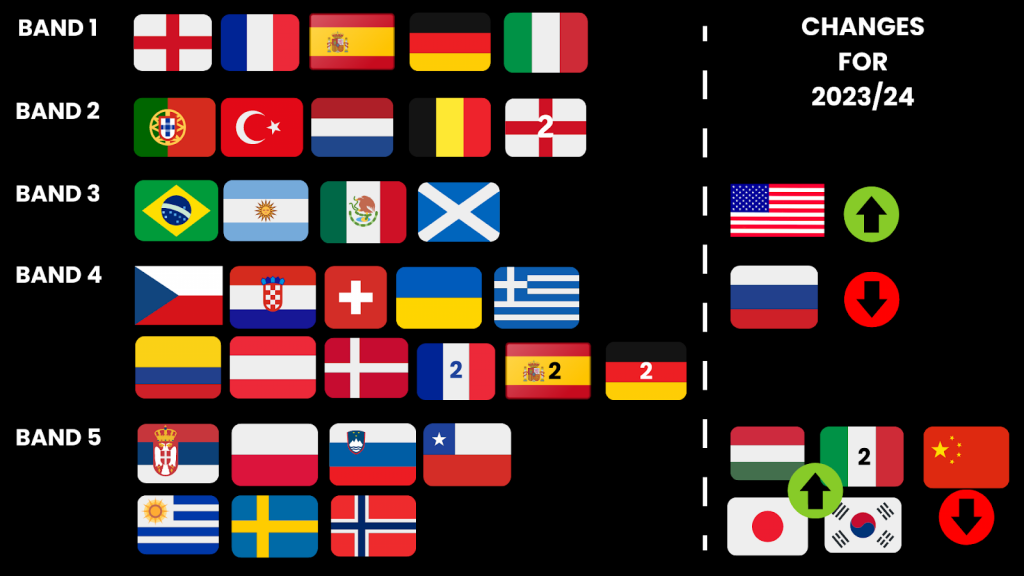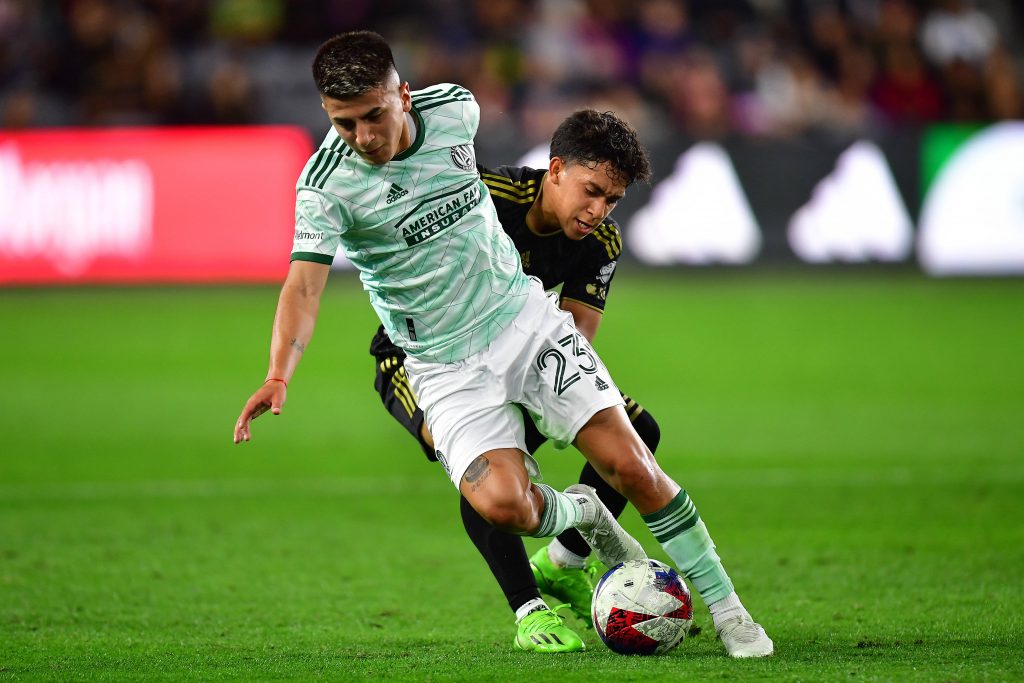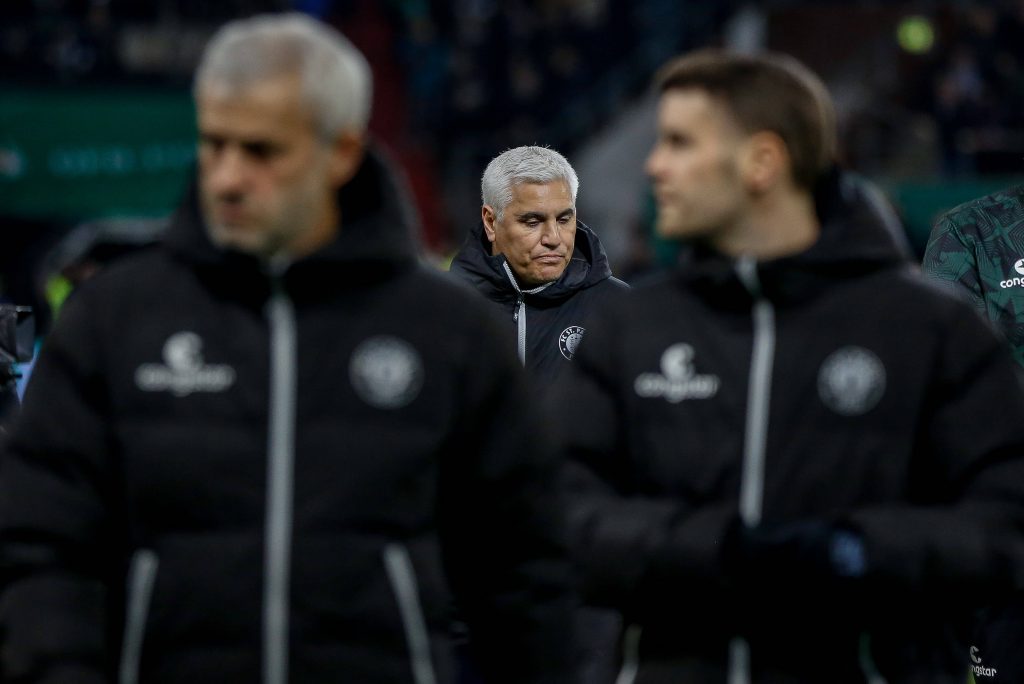James Nalton looks at the second big set of changes to the GBE regulations, banding changes which may significantly affect how clubs recruit from non-domestic markets
The English FA has updated its Governing Body Endorsement (GBE) criteria for overseas players joining the English leagues, including taking the big step of adding the possibility for clubs to sign players who do not meet the points requirements.
It is good news for teams throughout the Premier League and EFL looking to sign players from lower-profile leagues, and it is also good for the players themselves as it allows them to move more freely.
It is now much easier for English clubs to sign players from Major League Soccer (MLS) clubs in the United States and Canada. It has also opened up a way for English clubs to sign players directly from leagues such as the Japanese J1 League, South Korean K League 1, Hungary’s Nemzeti Bajnokság I, and the Italian Serie B which are new additions to the list of competitions named in the document. A league being named in the document, rather than categorised among other leagues not listed, is important when it comes to the new, more relaxed GBE and work permit rules.
Tweaks to the banding system, which ranks all leagues around the globe at six different levels, plus the introduction of a new way for clubs to sign players who don’t meet the points requirements, will change the process significantly and increase the player pool available to English Premier League and EFL clubs.
The points-based system will remain in use, but the FA has introduced what it describes as “a new football solution which works for everyone and provides additional access to exceptional international talent which falls outside the current GBE criteria.”
All teams in the Premier League, Championship, League One and League Two will be able to sign two overseas players who don’t qualify for a GBE via the points-based system. The criteria refer to these players as elite significant contribution (ESC) players.
On top of this, Premier League and Championship clubs have the opportunity to include two further ESC players (so a maximum of four in total) based primarily on the percentage of minutes they offer to English players.
More detail on those English player requirements and the requirements for a player to be considered an ESC player can be found here.
In short, overseas players or youth players who have played in competitive games at youth or senior international level, or have made at least five appearances in a Band 1-5 league, or have appeared in any continental competition, are likely to qualify as an ESC player.
Why is banding so important?
The banding is a key part of this, and a league being listed in Bands 1-5 now opens the door for English clubs to sign players from those leagues with few obstacles, if they have ESC slots available.
This will dramatically increase the number of overseas players clubs in the Premier League and EFL can sign and means less attention will need to be paid to the points-based system prior to scouting as long as there are slots available.
After identifying players, the points-based system is still relevant. Having free ESC slots will always be handy for clubs and their recruitment teams, so getting the required 15 points a player needs for a GBE to apply for a work permit is still very useful, though no longer mandatory.
A few changes to the banding system are important when it comes to signing overseas players on the points-based system and as ESC players.
One of the easiest ways for a player to gain the 15 points required to secure a GBE for a work permit without taking up an ESC slot is by playing in a high-level domestic or continental league – ideally both.
The level/quality of these leagues is defined in a banding system which separates global domestic leagues into different levels from Band 1 to Band 6, and continental competitions from Band 1 to Band 3. The breakdown of the different bands is shown below.
The Bands
Band 1 – English Premier League, German Bundesliga, La Liga, Serie A, Ligue 1.
Band 1 Continental Competition – UEFA Champions League, Copa Libertadores.
Band 2 – Portuguese Primeira Liga, Eredivisie, Belgian First Division A, Turkish Super Lig, English Championship.
Band 2 Continental Competition – UEFA Europa League and Copa Sudamerica.
Band 3 – Major League Soccer, Campeonato Brasileiro Série A, Primera División of Argentina, Liga MX, Scottish Premiership.
Band 3 Continental Competition – any continental competition which is not a Band 1 Continental Competition or Band 2 Continental Competition.
Band 4 – Czech First League, Croatian First Football League, Swiss Super League, La Liga 2, German Bundesliga 2, Ukrainian Premier League, Greek Superleague, Colombian Categoría Primera A, Austrian Bundesliga, Danish Superliga, Russian Premier League and Ligue 2.
Band 5 – Serbian SuperLiga, Polish Ekstraklasa, Slovenian PrvaLiga, Chilean Primera División, Uruguayan Primera División, Swedish Allsvenken division, Norwegian Elitserien, Italian Serie B, Hungarian Namzeti Bajnoksag I, Japanese J1 League, Korean K League 1.
Band 6 – all leagues not in Band 1, Band 2, Band 3, Band 4, or Band 5.
Ringing the changes
A handful of leagues have moved up or down in this banding system since the first document was released after Brexit in 2020.

MLS might be the league that benefits the most from the revising of the criteria as it has moved up from being a Band 4 league to a Band 3 league.
This ‘promotion’ now means that a player playing more than 80% of their team’s minutes in MLS will now be able to secure the required points to join an English team from that alone. Under the previous rules, with MLS as a Band 4 league, additional extras would have been required such as continental minutes, international appearances, the player’s team topping the conference or winning the MLS Cup. Though these are still applicable and will come into play if a player has played fewer than 80% of their team’s minutes, it is now possible for a player to obtain a GBE from simply playing regularly in MLS, which wasn’t the case before.
The one gripe might be that the Concacaf Champions Cup, and indeed some other Champions League level continental tournaments around the world, are only considered Band 3 continental competitions rather than Band 1 or 2 (see above).
MLS has effectively swapped places with the Russian Premier League, which drops to Band 4. The only other league to emerge negatively from these changes is the Chinese Superleague, which has been removed from the list altogether, so is now considered Band 6.
The 2022/23 update saw the Danish Superliga move from Band 5 to Band 4, while new leagues have also been added at the Band 5 level that were previously not mentioned by name at all, and instead were included in the catch-all Band 6 level.
The Swedish Allsvenken and the Norwegian Elitserien were added to Band 5 in the 2022/23 update, while the 2023/24 version sees the introduction of the Italian Serie B, the Hungarian Namzeti Bajnoksag I, the Japanese J1 League, and the South Korean K League 1.
New leagues being included in Band 5 is important as only Bands 1-5 are included in the requirements for a player to be signed in an ESC slot.
For example, if a player playing in the newly-added-to-Band 5 Japanese J1 League has no other way of achieving the 15 points for a GBE and doesn’t match any of the other criteria to be considered an ESC player, simply playing more than five games in the J1 League would now be enough to sign for an English club as an ESC player.
This opens up the possibility for EPL and EFL clubs to sign players from the South Korean K League, Hungary’s Nemzeti Bajnokság I, and the Italian Serie B etc.
On the other hand, signing players from the Chinese Super League is now more difficult, even as an ESC player, unless these players qualify via other avenues such as international or continental appearances.
Combining the new ESC rules with the addition of four leagues to Band 5 is a game-changer, and recruitment teams at clubs in the EFL and Premier League will no doubt be encouraged by this latest update. It opens up a whole raft of new leagues they can scout with a realistic chance of signing players, rather than having to wait for these players to first move to other leagues in Europe or having to devise workarounds through loans or feeder clubs.
Header image copyright: IMAGO / USA TODAY Network














